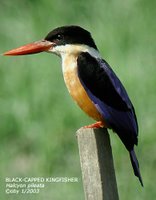
Read at least 2 hours every week and hand in responses (samples below).
Every time you read, even at home, update your daily independent reading log. It should like like this:
Daily Independent Reading Log
Date*Title*Page*Start*Page*End*Completed Date
************************************
Here are some sample responses.
Literary Letter on Tar Beach
9-15-02
Dear Diana,
I am reading Tar Beach by Faith Ringgold. I will be done reading it today, because it is a really short picture book for kids. At first I felt weird reading a kid’s book, but I could really see the connections between this book and the unit we are studying in American history class. I also chose this book because it reminds me of New York City, where I am from. In the book a little girl named Cassie Louise Lightfoot pretends she can fly over all the tall buildings and bridges in New York City. She lies on the roof of her apartment building in Harlem while her parents are up there having a party with their friends. She looks out at the sky and imagines herself up with the stars—this is a very nice image—like she is free. I always wanted to be able to fly when I was little and imagined that I could fly away home when I was having a bad day at school. I bet I am not the only one who did this. This is a very good book, because I can relate to the story even though it describes an experience Cassie had a long, long time ago (in the 1930s!). It makes me think differently about the history I am studying, too—like real people were part of history—not just wars and dates and famous men.
Yours truly, Maria
***********************************
Response to Ziggy
I am reading Ziggy and the Black Dinosaurs by Sharon Draper. On pages 43–44 Jerome is taking with his grandmother. I like this part of the story because it reminds me of times when I would talk to my grandmother when I was a little kid. Like Jerome’s grandmother, my grandmother used to tell me stories about the history of my family. I really liked to hear the stories that she told me.
************************************
VOCABULARY FOR ZIGGY (Mystery Genre)
You need to have index cards for all the following words. Look up definitions in your dictionaries and we will review in class.
fierce, investigate, character, excavation, originate,
convey, physique, trauma,reconstruct, specify, durable,
modify, constant, commute, incredibly, excursion, lapse,
distorted, suspense, retrieve, placid, explode, prefix, velocity, acrid


